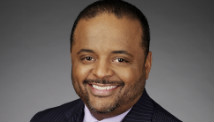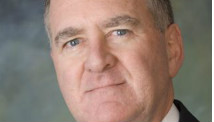VATICAN CITY (Reuters) - Pope Benedict asked the faithful to pray for him and for the next pope, in his penultimate Sunday address to a crowded St. Peter's Square before becoming the first pontiff in centuries to resign.
The crowd chanted "Long live the pope!," waved banners and broke into sustained applause as he spoke from his window. The 85-year-old Benedict, who will abdicate on February 28, thanked them in several languages.
Speaking in Spanish, he told the crowd which the Vatican said numbered more than 50,000: "I beg you to continue praying for me and for the next pope".
It was not clear why the pope chose Spanish to make the only specific reference to his upcoming resignation in his Sunday address.
A number of cardinals have said they would be open to the possibility of a pope from the developing world, be it Latin America, Africa or Asia, as opposed to another from Europe, where the Church is crisis and polarized.
"I can imagine taking a step towards a black pope, an African pope or a Latin American pope," Cardinal Kurt Koch, a Swiss Vatican official who will enter the conclave to choose the next pope, told Reuters in an interview.
After his address, the pope retired into the Vatican's Apostolic Palace for a scheduled, week-long spiritual retreat and will not make any more public appearances until next Sunday.
Speaking in Italian in part of his address about Lent, the period when Christians reflect on their failings and seek guidance in prayer, the pope spoke of the difficulty of making important decisions.
"In decisive moments of life, or, on closer inspection, at every moment in life, we are at a crossroads: do we want to follow the ‘I', or God? The individual interest, or the real good, that which is really good?" he said.
FOR THE GOOD OF THE CHURCH
The pope has said his physical and spiritual forces are no longer strong enough to sustain him in the job of leading the world's 1.2 billion Roman Catholics at a time of crisis for the Church in a fast-changing world.
Benedict's papacy was rocked by crises over the sex abuse of children by priests in Europe and the United States, most of which preceded his time in office but came to light during it.
His reign also saw Muslim anger after he compared Islam to violence. Jews were upset over his rehabilitation of a Holocaust denier. During a scandal over the Church's business dealings, his butler was convicted of leaking his private papers.
Since his shock announcement last Monday, the pope has said several times that he made the difficult decision to become the first pope in more than six centuries to resign for the good of the Church. Aides said he was at peace with himself.
"In a funny way he is even more peaceful now with this decision, unlike the rest of us, he is not somebody who gets choked up really easily," said Greg Burke, a senior media advisor to the Vatican.
"I think that has a lot to do with his spiritual life and who he is and the fact he is such a prayerful man," Burke told Reuters Television.
People in the crowd said the pope was a shadow of the man he was when elected on April 19, 2005.
"Like always, recently, he seemed tired, moved, perplexed, uncertain and insecure," said Stefan Malabar, an Italian in St. Peter's Square.
"It's something that really has an effect on you because the pope should be a strong and authoritative figure but instead he seems very weak, and that really struck me," he said.
The Vatican has said the conclave to choose his successor could start earlier than originally expected, giving the Roman Catholic Church a new leader by mid-March.
Some 117 cardinals under the age of 80 will be eligible to enter the secretive conclave which, according to Church rules, has to start between 15 and 20 days after the papacy becomes vacant, which it will on February 28.
But since the Church is now dealing with an announced resignation and not a sudden death, Vatican spokesman Federico Lombardi said the Vatican would be "interpreting" the law to see if it could start earlier.
CONSULTATIONS BEGUN
Cardinals around the world have already begun informal consultations by phone and email to construct a profile of the man they think would be best suited to lead the Church in a period of continuing crisis.
The Vatican appears to be aiming to have a new pope elected and then formally installed before Palm Sunday on March 24 so he can preside at Holy Week services leading to Easter.
New details emerged at the weekend about Benedict's health.
Peter Seewald, a German journalist who wrote a book with the pope in 2010 in which Benedict first floated the possibility of resigning, visited him again about 10 weeks ago.
"His hearing had deteriorated. He couldn't see with his left eye. His body had become so thin that the tailors had difficulty in keeping up with newly fitted clothes ... I'd never seen him so exhausted-looking, so worn down," Seewald said.
The pope will say one more Sunday noon prayer on February 24 and hold a final general audience on February 27.
The next day he will take a helicopter to the papal summer retreat at Castel Gandolfo, south of Rome, where he will stay for around two months before moving to a convent inside the Vatican where he will live out his remaining years.
(Additional reporting by Hanna Rantala; Editing by Robin Pomeroy)


